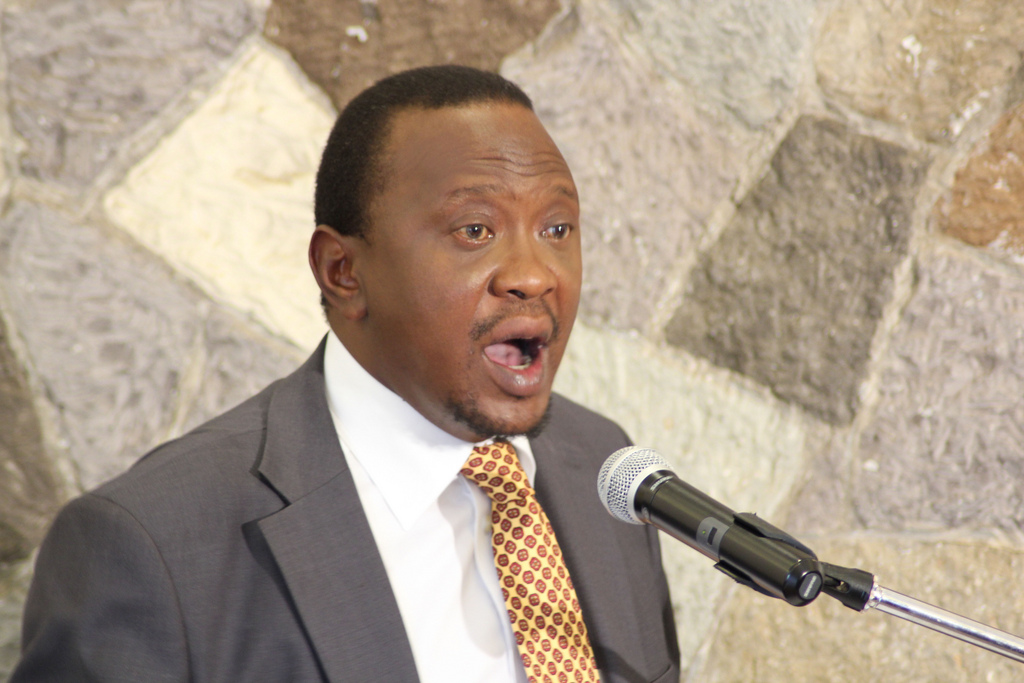McMUN 2018: Kenya’s 2017 Elections Mirror 2007 Elections Committee

On August 8th 2017, Kenyan voters went to cast their votes for either Raila Odinga of the ODM or Uhuru Kenyatta of the Jubilee party — only to have their votes later nullified by the Supreme Court. This wasn’t Odinga’s first election loss, nor the first time he declared himself the rightful winner due to corruption within electoral proceedings. The McMUN committee on Kenya’s 2007 election debated the sources of such corruption when Mwai Kibaki became Kenya’s President on December 27, beating Odinga, which sparked local and international outrage.
After Raila Odinga established himself as Kenya’s rightful leader in the committee, the delegates – representing various African presidents, members of Kenya’s parliament, and commissioners – collaborated to produce directives which stated the factors that contributed to Kenya’s instability, along with their proposed solutions. The relationship between Somalia and Kenya was a hot topic, along with instability produced by Kenya’s ethnic cleavages. China’s presence in Kenya was discussed at length, but there was much debate as to whether the infrastructure China created was creating new opportunities for Kenyans, or leaving a higher number unemployed and outsourced by foreign Chinese workers.
Midway through the session on Saturday afternoon, a message was broadcasted stating “how great” China is because of the jobs they created for Kenyans, and finished off by saying that, if those listening didn’t give them what they wanted, they will kill them. The hack demonstrated immense technical skill, broadcasting segments of Chinese patriotism from every radio station in Nairobi. Shortly after, the directive “Kenyan Jobs for Kenyans” was presented, demanding that Kenya:
- Cap foreign construction
- Limit foreign investment
- Limit presence of foreign media
- Limit donations to political parties
Paul Kagame, Rwandan President and supporter of the directive, said that this was the only way Kenya could “maintain their democracy.” He suggested that Kenya’s sovereignty has been diminished by foreign entities because China disproportionately benefits from its resources and furthers Kenya’s dependency complex in the long-term, with many international politicians and businesses wanting a stake in Kenya’s promising economy, which exponentially grew prior to the post-election violence in 2008. On the opposing side, Moses Wetangula, a member of parliament, said that the directive limits Kenya’s potential as a key leader in the global economy by limiting investment. The directive ultimately failed, which historically fits with how China’s relationship with Kenya would later evolve.
In the early 2000s, China’s relationship with Kenya skyrocketed. In 2002, bilateral trade between the two countries amounted to $186.37 million USD, and between then and 2005, Kenya’s external development assistance went from 0.08% to 13%. Ten years later, in present-day Kenya, this economic relationship has grown considerably. Kenya now imports over $14 billion USD from China per annum and is part of China’s $3 trillion “One Belt, One Road” project which eonomically connects Asia, Europe, the Middle East, and Africa. However, the same debates remain today: many see China’s economic development policies as an improvement on American peacekeeping missions, which often emphasize regime change, such as Syria in 2016. Others say that China’s “self-promotional” interests are imperialistic in themselves, especially considering their trade imbalance. Both Odinga and Kenyatta, now, have found favour with Beijing. “China comes to Africa as a partner,” Odinga said in 2015. Although Kenyatta demanded China “open its markets to more than commodities,” the Politburo’s relationship with Kenya has grown significantly under Kenyatta’s presidency.
Had “Kenyan Jobs for Kenyans” existed not only in simulation, and had it passed, its last point to restrict political party donations would have potentially changed the outcome of Kenya’s 2017 elections – which happened to be the second most expensive in the world. As the old maxim goes, “He who controls the country’s wealth controls its politics.” Many of Kenya’s key political figures – including Odinga, Mwai, and Kenyatta – also happen to be some of the richest people in Kenya. Kenyatta’s Jubilee party spent Sh312,141,620 on advertising during their campaign; Odinga’s Nasa party spent Sh155,153,840. The politicians even purchased helicopters to “ease their movements across the country during the campaign period.” Because of the exorbitant funding a candidate requires, Kenyan elections have become a two-horse race and reveals the problem of “dynasty politics” in Kenya. As the son of Oginga Odinga, Kenya’s first Vice President and popular independence leader, Raila Odinga developed a large ally base early on in his political career – and much of this ally base has sustained him through his long political career. Kenyatta also had an influential father. It is often said that he was “born in State House, and hence born to power,” as the son of Jomo Kenyatta, the country’s first President.
One directive that did pass during the Saturday afternoon session was put forth by Raila Odinga, which effectively installed him as President of Kenya. In three days, the real Raila Odinga will be “sworn-in” as President in a ceremony his party has organized – despite threats of international sanctions, and despite the constitutional government that is already in place. In this instance, the gap between simulation and tangible policy making diminishes as delegates and politicians alike wonder what power such maneuvers will grant Odinga.
Edited by Sarie Khalid and Benjamin Aloi
